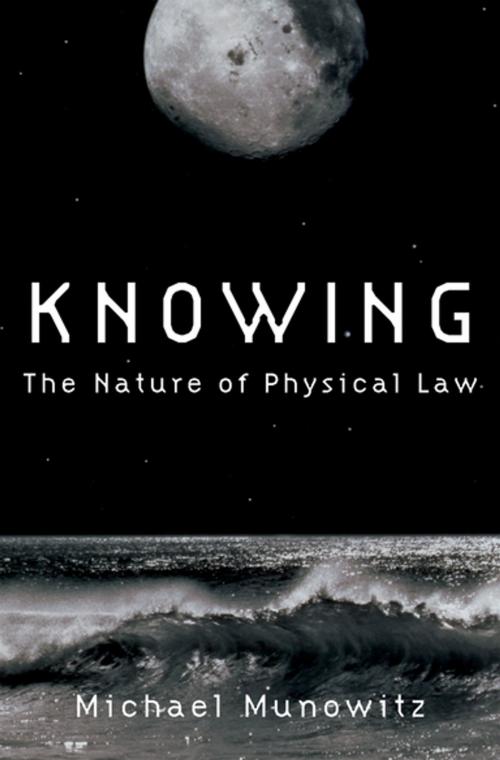Knowing
The Nature of Physical Law
Nonfiction, Science & Nature, Science, Physics, General Physics, Other Sciences, History| Author: | Michael Munowitz | ISBN: | 9780199830817 |
| Publisher: | Oxford University Press | Publication: | November 1, 2005 |
| Imprint: | Oxford University Press | Language: | English |
| Author: | Michael Munowitz |
| ISBN: | 9780199830817 |
| Publisher: | Oxford University Press |
| Publication: | November 1, 2005 |
| Imprint: | Oxford University Press |
| Language: | English |
We ask question after question of an indifferent universe that would just as soon remain mute; and slowly, patiently, one sentence at a time, we write our own version of the book of nature. It is called science, from the Latin word for knowledge, and it is a book everybody should read. With simplicity and elegance, Knowing interprets the book of nature for curious readers of all sorts--but especially for those hoping to appreciate the beauty of physics without getting lost in the mathematics. Indeed, there is a world of scientific understanding in the pages of this gracefully written and inviting book, where hundreds of little diagrams substitute for the equations that physicists otherwise need to tell their tale. Readers will discover the way things work: how big things (like Earth or Moon) come from small things (like quarks and electrons), how tiny particles push and pull, and how the world hangs in the balance. We learn how an "unbiased" observer and a fixed speed of light, nothing else, conjure up E=mc2 and four-dimensional space-time. We see how Newton's clockwork universe of unwavering determination differs (but not in every respect) from Heisenberg's quantum universe of hazy uncertainty. And we see how a world of chaos throws a wrench into everybody's mechanical ideal. From tiny atoms to vast galaxies, the universe is ours to explore and to know: its particles, its interactions, its laws, its unending surprises. Heavily illustrated with explanatory drawings and diagrams--perhaps no other science book for general readers uses diagrams so extensively--Knowing takes us to the edge of modern science, allowing us to peer in further than we would have dreamed possible.
We ask question after question of an indifferent universe that would just as soon remain mute; and slowly, patiently, one sentence at a time, we write our own version of the book of nature. It is called science, from the Latin word for knowledge, and it is a book everybody should read. With simplicity and elegance, Knowing interprets the book of nature for curious readers of all sorts--but especially for those hoping to appreciate the beauty of physics without getting lost in the mathematics. Indeed, there is a world of scientific understanding in the pages of this gracefully written and inviting book, where hundreds of little diagrams substitute for the equations that physicists otherwise need to tell their tale. Readers will discover the way things work: how big things (like Earth or Moon) come from small things (like quarks and electrons), how tiny particles push and pull, and how the world hangs in the balance. We learn how an "unbiased" observer and a fixed speed of light, nothing else, conjure up E=mc2 and four-dimensional space-time. We see how Newton's clockwork universe of unwavering determination differs (but not in every respect) from Heisenberg's quantum universe of hazy uncertainty. And we see how a world of chaos throws a wrench into everybody's mechanical ideal. From tiny atoms to vast galaxies, the universe is ours to explore and to know: its particles, its interactions, its laws, its unending surprises. Heavily illustrated with explanatory drawings and diagrams--perhaps no other science book for general readers uses diagrams so extensively--Knowing takes us to the edge of modern science, allowing us to peer in further than we would have dreamed possible.















